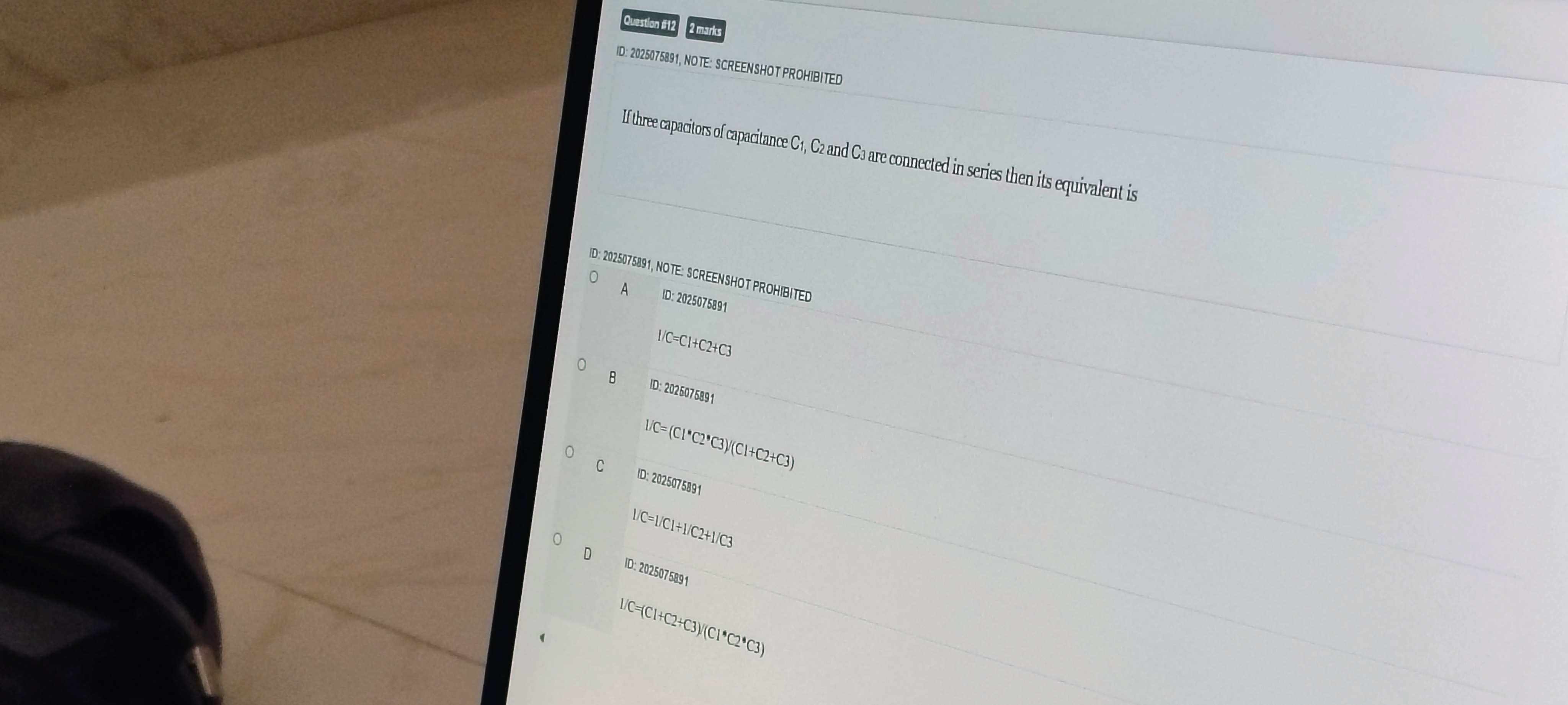Question
Question: If three capacitors of capacitance C1, C2 and C3 are connected in series then its equivalent is...
If three capacitors of capacitance C1, C2 and C3 are connected in series then its equivalent is

A
C1=C1+C2+C3
B
C1=(C1+C2+C3)(C1∗C2∗C3)
C
C1=C11+C21+C31
D
C1=(C1∗C2∗C3)(C1+C2+C3)
Answer
The equivalent capacitance C of three capacitors C1, C2, and C3 connected in series is given by:
C1=C11+C21+C31Explanation
Solution
When capacitors are connected in series, the reciprocal of the equivalent capacitance is the sum of the reciprocals of the individual capacitances.
For capacitors in series, the total potential difference across the combination is the sum of potential differences across individual capacitors, and the charge on each capacitor is the same.
V=V1+V2+V3
Since V=Q/C, we have:
Q/C=Q/C1+Q/C2+Q/C3
Dividing by Q (assuming Q is not zero), we get:
C1=C11+C21+C31